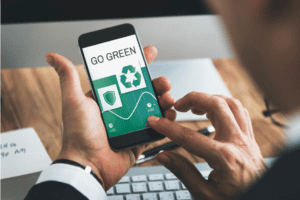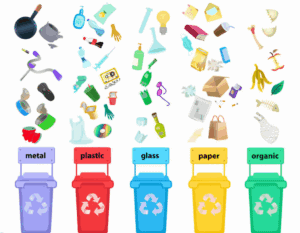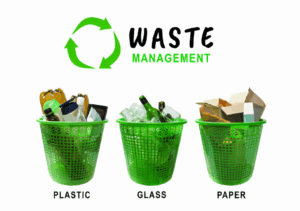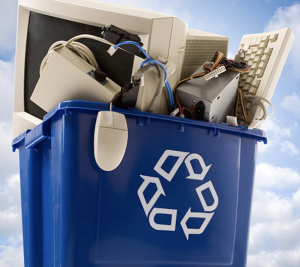India is one of the largest consumers of electronic goods, with its rapidly growing digital economy and tech-savvy population contributing to a significant increase in electronic waste (e-waste). The Global E-Waste Monitor 2020 ranked India as the third-largest generator of e-waste, producing over 3.2 million metric tons in 2019 alone. However, only a fraction of this waste is properly recycled, with most of it either dumped in landfills or processed through informal, unregulated channels. India faces significant challenges in building a robust e-waste recycling infrastructure, but with the right strategies, the country can turn this crisis into an opportunity for sustainable growth.
The E-Waste Challenge in India
India’s e-waste problem stems from the exponential increase in the use of electronic devices, coupled with a lack of awareness about proper disposal methods. Rapid technological advancements, shorter product lifecycles, and a consumer preference for upgrading to newer models are driving the increase in e-waste. Unfortunately, much of this e-waste ends up in informal recycling hubs, where workers use unsafe practices, including open burning and acid leaching, to extract valuable metals from discarded devices.
The informal recycling sector, while offering employment to many, poses significant environmental and health risks. Harmful substances like lead, mercury, and cadmium found in e-waste contaminate the air, soil, and water, leading to widespread pollution and serious health hazards. Moreover, the inefficient recovery methods used by informal recyclers lead to a significant loss of valuable materials, further exacerbating the resource and environmental impact through ewaste recycling in Bangalore.
India has taken initial steps to address this issue through legislation like the E-Waste (Management) Rules, 2016, which introduced the concept of Extended Producer Responsibility (EPR), making manufacturers responsible for the safe disposal of their products. However, challenges remain in enforcement, public awareness, and infrastructure. Strengthening the country’s e-waste recycling infrastructure is crucial to addressing these challenges.
Strengthening Regulatory Frameworks
One of the first steps in improving India’s e-waste recycling infrastructure is to strengthen its regulatory framework. While the E-Waste (Management) Rules, 2016 were a positive step, more comprehensive regulations are needed to ensure better compliance and enforcement.
- Tighter Enforcement of EPR: The concept of Extended Producer Responsibility (EPR) needs stricter enforcement. Producers of electronic goods must be held accountable for managing the end-of-life of their products. However, many producers either fail to meet their collection targets or are unaware of their obligations under EPR. Stronger penalties for non-compliance, combined with incentives for companies that achieve high recycling rates, can encourage manufacturers to take their responsibilities more seriously.
- Supporting Formal Recycling Enterprises: There is a need to strengthen the formal recycling sector in India by providing incentives, financial support, and streamlined regulations. Formal recyclers can process e-waste more safely and efficiently, but they often struggle to compete with the informal sector due to higher costs. Government support in the form of tax breaks, subsidies, or low-interest loans can help formal recyclers expand their operations.
- Introducing Deposit-Refund Systems: A deposit-refund system where consumers pay a small deposit when purchasing electronics, which is refunded when they return the product for recycling, could encourage responsible disposal. Such systems have been successful in several European countries and could increase India’s formal collection rate.
Expanding Recycling Infrastructure
India’s existing e-waste recycling infrastructure is insufficient to handle the growing volume of discarded electronics. To improve this, India must focus on expanding and upgrading recycling facilities across the country.
- Establishing More Collection Centers: India needs to invest in a wider network of collection centers where consumers can easily drop off their old electronics for recycling. These centers should be conveniently located, well-publicized, and accessible to both urban and rural populations. Many consumers, particularly in smaller towns and villages, do not know where or how to recycle their electronics. Awareness campaigns combined with easy access to collection centers could significantly boost e-waste collection.
- Creating Regional E-Waste Processing Hubs: To improve efficiency, India can establish regional e-waste processing hubs equipped with state-of-the-art recycling technologies. These hubs could serve as centralized facilities for collecting, processing, and recycling e-waste, with satellite collection centers feeding into them. Having regional hubs will reduce the logistics costs of transporting e-waste and ensure that processing is done in an environmentally sound manner with ewaste refining Bangalore.
- Encouraging Public-Private Partnerships (PPPs): Public-Private Partnerships can be instrumental in enhancing e-waste recycling infrastructure. The government can collaborate with private enterprises to build and manage recycling plants, bringing in private sector expertise and investment while maintaining regulatory oversight. Successful PPPs can also spur innovation in recycling technology and create jobs in the formal recycling sector.
Enhancing Consumer Awareness
A key obstacle to e-waste recycling in India is the lack of consumer awareness about the importance of recycling and the availability of formal recycling channels. Many people are unaware of the harmful effects of improper e-waste disposal or do not know where to recycle their old electronics. Raising awareness is crucial to increasing participation in recycling efforts.
- National Awareness Campaigns: A coordinated, nationwide campaign highlighting the importance of proper e-waste disposal and the risks associated with informal recycling is needed. This campaign should target both urban and rural areas and utilize a variety of media platforms, including television, radio, social media, and print, to reach a broad audience. Partnering with influential personalities and organizations can amplify the message.
- Educational Initiatives: Introducing e-waste awareness programs in schools and universities can cultivate a generation of environmentally conscious consumers. Educational programs that explain the environmental and health risks of improper e-waste disposal, along with the benefits of recycling, will help instill responsible disposal habits from an early age.
- Retailer Participation: Retailers can play a crucial role in promoting e-waste recycling. Implementing take-back programs at electronics stores and online retail platforms can encourage consumers to return their old devices when purchasing new ones. Offering incentives like discounts or vouchers for recycling old electronics could further increase participation.

Leveraging Technology and Innovation
Technology and innovation can play a significant role in improving India’s e-waste recycling infrastructure. Advances in recycling technology can make the process more efficient, reduce costs, and recover a higher percentage of valuable materials.
- Adopting Advanced Recycling Techniques: India needs to invest in advanced recycling technologies, such as urban mining and robotic disassembly, which can recover valuable metals from e-waste more efficiently. These methods reduce the environmental impact of traditional recycling processes and minimize the loss of precious materials.
- Digital Platforms for E-Waste Management: Developing digital platforms that connect consumers with certified recyclers can make e-waste disposal easier. Apps or websites that provide information on nearby collection centers, recycling events, or take-back programs can streamline the process for consumers. These platforms could also track the amount of e-waste recycled and reward users for their participation.
- Blockchain for E-Waste Tracking: Blockchain technology can be used to create a transparent and traceable system for e-waste management. By tracking the lifecycle of electronics from production to disposal, blockchain can help ensure compliance with EPR regulations and reduce the illegal dumping of e-waste with ewaste in Bangalore. This technology can also provide consumers with peace of mind, knowing their e-waste is being handled responsibly.
In Last:
India’s e-waste recycling infrastructure requires urgent improvement to manage the growing volume of discarded electronics. By strengthening regulatory frameworks, expanding recycling facilities, raising consumer awareness, and embracing technological innovation, India can build a sustainable and efficient e-waste recycling system. A concerted effort involving the government, private sector, and consumers is essential to ensure that India not only addresses its e-waste problem but also leads the way in responsible electronics disposal. With the right strategies, India can transform its e-waste challenge into an opportunity for environmental sustainability, resource conservation, and economic growth.







